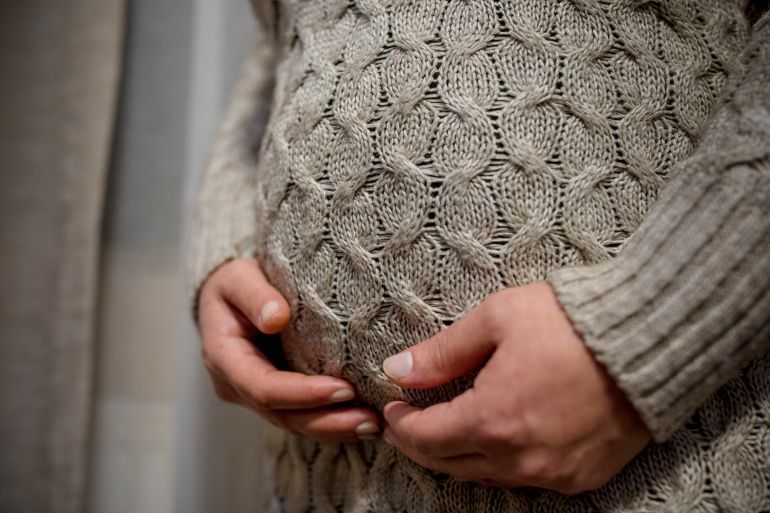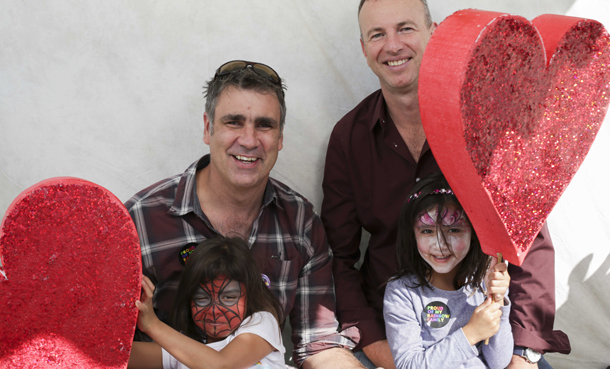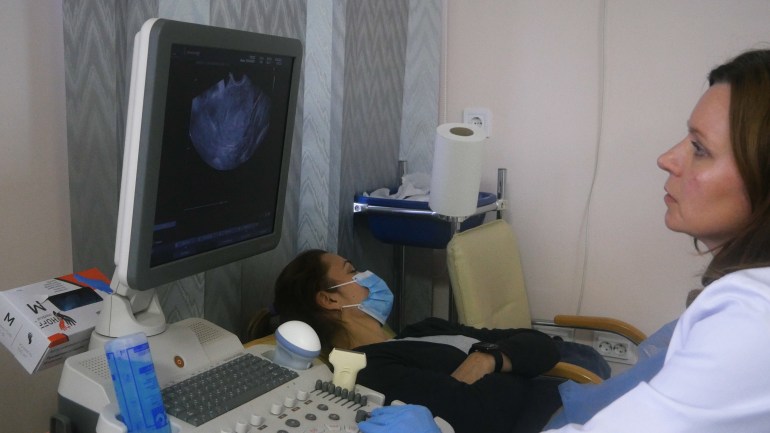‘It will really make me sad’: Georgia plans to ban commercial surrogacy
The Georgian government has proposed a ban to prevent foreign couples from accessing commercial surrogacy.

It is the second time Elena*, who lives in the Georgian capital Tbilisi, has opted to be a surrogate mother for an income.
With her own daughter requiring costly medical treatment and therapies to treat a health condition, Elena has found working as a surrogate mother a good way to support her family.
Keep reading
list of 1 item“The surrogacy programme helped me a lot with all of my daughter’s medical expenses and other household costs as well. It’s been a real relief for the whole family,” she told Al Jazeera.
Yet, this source of income could soon be cut off for Elena and other surrogate mothers in Georgia should the government’s proposed ban to prevent foreign couples from accessing commercial surrogacy services in the country be implemented next year as planned.
Announcing the plan for the ban in June, Prime Minister Irakli Garibashvili said it was needed to protect both surrogate mothers and children and prevent human trafficking.
He also said that it was necessary to ensure babies did not end up with same-sex couples in contravention of Georgian legislation.
The non-commercial surrogacy services will remain legal only on the “principle of altruism” and exclusively for Georgian couples.
The draft law foresees compensation for costs related to medical examinations or labour. If approved, the bill, which will also prohibit adverts for surrogacy services, will enter into force on January 1 next year.
The war in Ukraine
Analysts say the move comes amid increased pressure on the country’s surrogacy sector after Russia’s full-scale invasion of Ukraine last February that prompted a brief slowing down of surrogacy operations in the war-torn country. Prior to the war, Ukraine was considered the biggest surrogacy hub in Europe.
Polina Vlasenko, a postdoctoral researcher in reproductive mobilities at Indiana University, who has conducted field research in Georgia prior to the coronavirus pandemic, told Al Jazeera that the expected ban was part of a wider political agenda of Georgia’s conservative government.
“Part of it is also populism and the government trying to tailor policies towards voters and what society expects it to do in relation to certain topics that are very sensitive, which surrogacy is,” she said.
“But if this goes through, it will be surrogate mothers who will be negatively affected. Instead of providing them with better protections and security provisions, the government is deciding to just ban the whole practice, which basically takes their job away from them,” Vlasenko added.
More broadly, it is the latest development within an already precarious sector that has been impacted by the war in Ukraine as well as alleged human trafficking scandals.
Last month, a large fertility clinic in Greece was accused of exploiting nearly 200 surrogate mothers from countries including Ukraine, Romania and Georgia.
The scandal left a number of intended parents and babies in legal limbo.

“There’s a lot of pressure on the sector internationally,” said Sam Everingham, the global director of prominent Sydney-based surrogacy networking organisation Growing Families.
“After the war broke out in Ukraine, fertility programmes shut down for about six months, and then clinics slowly reopened,” said Everingham, who had two daughters with his same-sex partner via surrogacy more than 10 years ago.
In the meantime, many Ukrainian surrogates moved to North Cyprus, Greece and Georgia, putting pressure on these smaller nations that do not have strong legal and regulatory frameworks, he told Al Jazeera.
“Now, we are dealing with the situation in Greece, while for intended parents, we are seeing the costs of surrogacy rising globally.”
Global surrogacy sector
A procedure that first became possible in the US about 30 years ago to support couples who cannot conceive naturally, commercial surrogacy remains illegal in many European nations.
Ukraine and Georgia are among the countries where for-profit companies have legally been allowed to operate.
While it is difficult to obtain accurate figures, research shows that about 2,000 babies were being born in Ukraine by surrogates before the outbreak of the war last year.
Denis Herman, the legal adviser at BioTexCom medical centre, one of Europe’s largest fertility clinics that opened in Kyiv in 2014, told Al Jazeera the initial period after Russia’s all-out war in Ukraine was hard but the company’s operations were currently back to pre-war levels.
“From the 28th week of pregnancy, we ask surrogate mothers to come to Kyiv, but after the invasion, it was hard to get mothers from eastern parts of Ukraine and in separatist regions here safely,” he said.
“There were a lot of checkpoints to pass and we had one case where one mother was stopped at a final checkpoint by Russian soldiers. The surrogate mother had to buy food at the nearest village, where she stayed for a few days. She later managed to be evacuated by another team of volunteers.”

Herman said that there were also hurdles for intended foreign parents, who despite the risks, have sought the services in the war-torn country.
The cost of BioTexCom’s surrogacy packages begins at 39,000 euros ($41,816).
“There were a lot of challenges for our intended parents because the babies were being born every day, and not all of the parents were able to go to Ukraine. Some couples from Europe visited us in their own cars and their own supply of petrol since at the time there was a big shortage,” Herman said.
Integrating tools picked up during the coronavirus pandemic, such as using the digital space to keep the process going, has helped the clinic get back to work.
“More than 600 babies have been born since the invasion. Now, everything works completely as it used to.”
Georgia absorbed some of the foreign clientele, a reverberation that analysts say continues to impact the surrogacy sector within Ukraine and beyond its borders despite the resumption of Ukrainian services.
“With Georgia being unable to cope with this increased demand since the outbreak of the war, what that’s meant now is increased pressure on places that have got reliable programmes like Canada and the USA, and increased uptake of programmes in countries which are sort of emerging, such as Argentina, Mexico and even Uganda,” said Everingham.
Analysts say that as surrogacy becomes increasingly common for couples, it is time for governments around the world to start to regulate the industry and increase protective measures.
“Some hard questions need to be asked of providers about what they’re doing to look after surrogates and vacuums need to be filled at a country level to ensure parents are protected from doing desperate things,” said Everingham.
Back in Georgia, surrogate mother Elena said that if the Georgian government does push through with the ban, she sees women emigrating.
“It will really make me sad if they actually pass a new law banning surrogacy for foreign patients,” she said.
“In my opinion, this is discrimination more than a valid bill. Everyone has the right to have a child and nationality does not matter. Patients respond to kindness with kindness and it’s a really amazing feeling to be able to fulfil the dreams of couples who have been waiting for a child for a long time,” Elena added.
Elena* chose to speak to Al Jazeera on condition of anonymity.